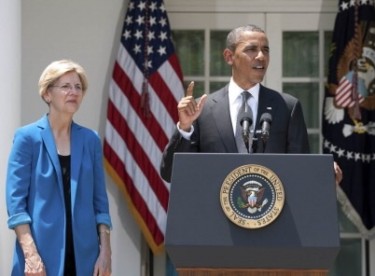Ricochet is the best place on the internet to discuss the issues of the day, either through commenting on posts or writing your own for our active and dynamic community in a fully moderated environment. In addition, the Ricochet Audio Network offers over 50 original podcasts with new episodes released every day.
 Successful and Unsuccessful Movements
Successful and Unsuccessful Movements
 Vaclav Havel wrote that successful political movements don’t start political. Instead, they begin focused on unique ideas about living. As the group gain members and sorts out its ideas, they develop a more comprehensive lifestyle which ultimately leads to a political conflict. But what happens when the group becomes untethered from its social origins and fixated solely on a political purpose?
Vaclav Havel wrote that successful political movements don’t start political. Instead, they begin focused on unique ideas about living. As the group gain members and sorts out its ideas, they develop a more comprehensive lifestyle which ultimately leads to a political conflict. But what happens when the group becomes untethered from its social origins and fixated solely on a political purpose?
Mark Hemingway at The Weekly Standard describes such a devolution taking place before our eyes in the Democrat Party:
Anyway, as the tension over the [Trans-Pacific Partnership] mounted, Obama couldn’t hide his frustration with Warren and so he called her out by name. “The truth of the matter is that Elizabeth is, you know, a politician like everybody else,” Obama told Yahoo News reporter Matt Bai. As insults go, this is a subtle but classic Obama formulation; it’s undoubtedly true that Warren is a politician and motivated by political concerns. But by drawing this contrast between the two of them, the implication is that Obama is motivated by something more pure than the mere political concerns of Warren and “everybody else.”
Did this result in a substantive intraparty debate on the issues? Of course not. It ended with the president of NOW and Ohio Senator Sherrod Brown both calling Obama sexist for referring to Warren by her first name. Or something.
If the Democrats have become fixated on their political power to the exclusion of previous social movement goals, where do you think conservatives and the conservative “movement” fall on that range? How can we do better at promoting our unique ideas about living in freedom rather than by another’s prescription?
Published in General



Step One is distinguishing between movement and party. Much more than the Democrat/liberals, there’s a considerable distance between conservatives and the GOP. The GOP pursues votes, and when there’s a decision between capturing possible independent votes versus satisfying existing conservative voters, we conservatives get dumped most of the time. Let’s face it, often the Republican Party can’t wait to get rid of us.
These days we talk about the “Chamber of Commerce” crowd, conservatives, libertarians, tea party, etc. The political GOP really doesn’t seem to care, so long as they get votes from enough people in those groups.
Political parties are cold-hearted that way, and I suppose we expect it. They use us, and it’s time we started using them. Call it “transactional loyalty.”
I think we agree: There’s more to life than the political, though it’s easy to lose that perspective. Losing the social aspect of freedom undermines our political opportunities because then we’re only left with politicians to represent us, which as you said doesn’t work to our advantage.